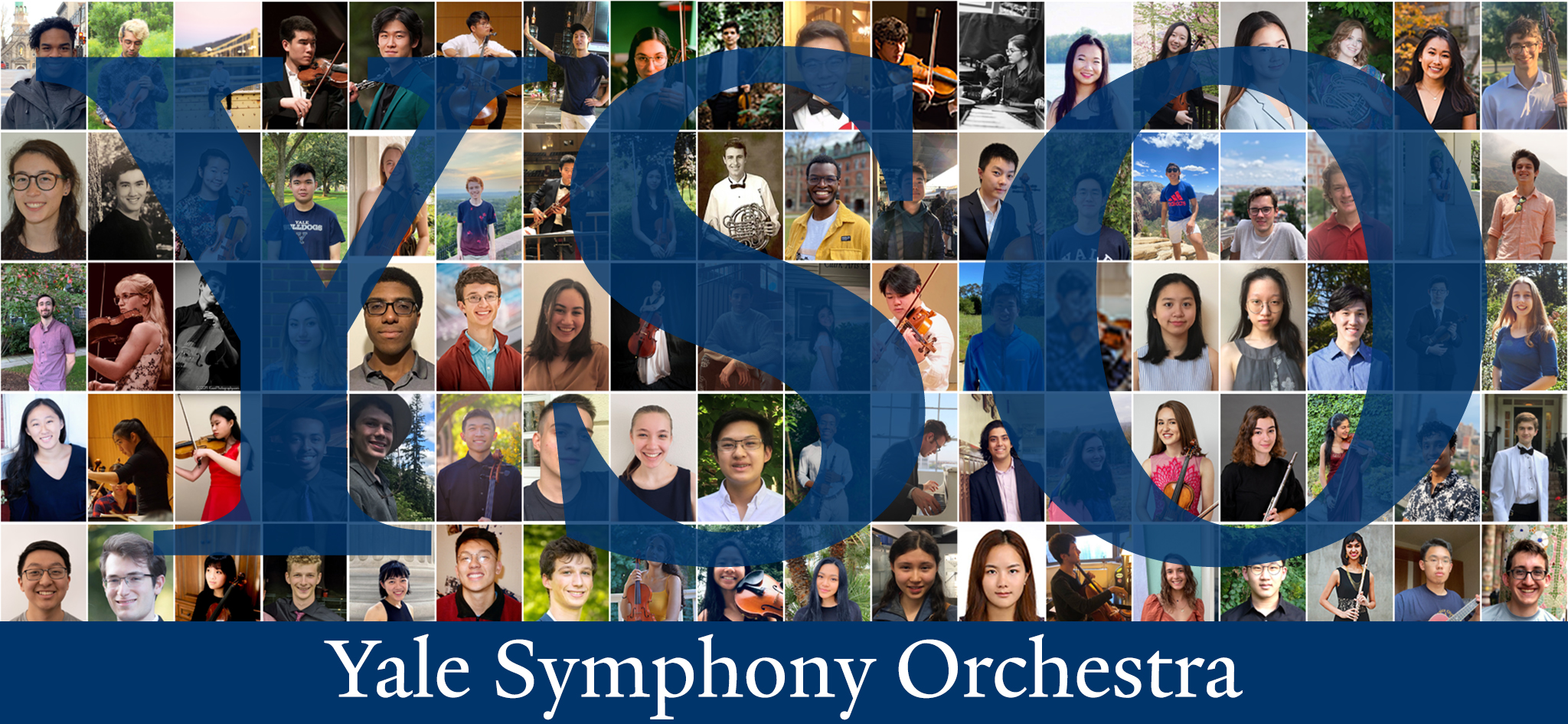YSO to present “Hope”
This Saturday, YSO will present its first regular season concert this semester with pieces by Omar Thomas, Sergei Rachmaninoff and Richard Strauss.

Courtesy of the Yale Symphony Orchestra
The Yale Symphony Orchestra will open its season this Saturday with a concert called “Hope” at 7:30 p.m. in Woolsey Hall.
The repertoire consists of contemporary composer Omar Thomas’ “Of Our New Day Begun,” Russian Romantic composer Sergei Rachmaninoff’s “Piano Concerto No. 2” and German Romantic composer Richard Strauss’ “Der Rosenkavalier Suite.” George Hua ’22, winner of the 2020 William Waite Concerto Competition, will be featured as the piano soloist in the Rachmaninoff concerto.
Due to University COVID-19-related performance time limits restricting concerts to 75 minutes, YSO decided to remove the shortest piece on the program, American composer Valerie Coleman’s “Seven O’Clock Shout.” The piece will instead be performed at a future concert.
“The YSO follows a programming philosophy that has three pillars,” YSO President Supriya Weiss said. “We are hoping to represent repertoire from the Western canon, American heritage and American contemporary.”
According to programming officer Nicholas Cerny ’24, the Western canon pillar includes typical names in classical music such as Beethoven and Brahms, while the two American genres, American heritage and American contemporary, correspond to works by deceased American composers and current American composers, respectively.
Cerny added that, as an American orchestra, YSO attempted to craft a program that reflects the “current state of the U.S.” and represents the titular theme of hope.
“We really wanted to pick a programming philosophy that reflected on our role within a world of not only pain and suffering, but also hope,” Cerny said. “That hope is for a better tomorrow, a hope for the campaign for racial justice and moving toward a better world in general.”
“Of Our New Day Begun” was written to honor nine people who lost their lives in an act of domestic terrorism in 2015 at the Emanuel African Methodist Episocopal Church in Charleston, South Carolina. According to the concert program, the musical themes of Thomas’ piece are “rooted in the Black American church tradition.” According to Weiss, performing this piece is part of YSO’s efforts to diversify the music it represents.
Cerny said that Thomas’ piece is “a very powerful work.”
“In ‘Of Our New Day Begun,’ you can hear this arc from tragedy and despair to hope for a better future,” concertmaster Albert Gang ’24 said.
According to Hua, the Rachmaninoff Concerto’s three movements present “a very clear emotional journey towards hope.” The first movement’s “solemn and dark” harmonies represent Rachmaninoff’s psychological struggles to reestablish himself as a composer and artist, while the second movement presents a melancholic state of reminiscence accompanied by a slight sense of optimism.
Finally, the third movement brings about a “celebratory” state where Rachmaninoff expresses feelings of triumph and pride.
“This piece is the depiction of Rachmaninoff’s path of recovery — it’s a musical work of hope,” Hua said.
Due to COVID-19, YSO is limited to hosting 275 live audience members. Tickets for the concert sold out within 90 minutes of their release on Oct. 7.
“This is our first concert where the orchestra is really coming back together to share our music in person with the Yale community, so I think it is a very hopeful thing for the future,” said Weiss.
This year, all tickets for regular season concerts will be free. Weiss explained that this is a new initiative the orchestra is pursuing in order to make concerts accessible.
“While we’re so lucky to have an in-person audience at all, I wish we got to play for more people,” Gang said. “I know a lot of people who could not reserve a ticket due to capacity.”
The concert will be livestreamed on YSO’s website.







